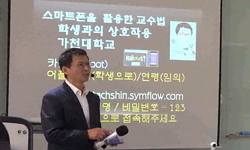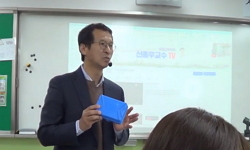Attention to Maeul Mandelgie, which means community making with trust, is rising sharply as self-reflection on the government and market-driven development policies is gaining momentum. But it is true that discussion on values that must be pursued by ...
http://chineseinput.net/에서 pinyin(병음)방식으로 중국어를 변환할 수 있습니다.
변환된 중국어를 복사하여 사용하시면 됩니다.
- 中文 을 입력하시려면 zhongwen을 입력하시고 space를누르시면됩니다.
- 北京 을 입력하시려면 beijing을 입력하시고 space를 누르시면 됩니다.
공동체주의 정의론의 관점에서 본 마을만들기 사례 비교분석 = A Comparative Analysis of the 'Maeul Mandelgie Project' from Communitarian Perspective
한글로보기https://www.riss.kr/link?id=T13234672
- 저자
-
발행사항
서울 : 서울시립대학교 일반대학원, 2013
-
학위논문사항
학위논문(박사) -- 서울시립대학교 일반대학원 , 도시행정학과 , 2013. 8
-
발행연도
2013
-
작성언어
한국어
-
주제어
공동체주의 정의론 ; 마을만들기 ; 참여성 ; 상호작용 ; 합의성 ; 부산 물만골 공동체 ; 대구 삼덕동마을만들기 ; 대전 무지개프로젝트 ; 광주 시화문화마을
-
KDC
359.01 판사항(4)
-
발행국(도시)
서울
-
형태사항
244 p. : 삽화 ; 26 cm.
-
일반주기명
지도교수:서순탁
참고문헌 : p. 210-221 - 소장기관
-
0
상세조회 -
0
다운로드
부가정보
다국어 초록 (Multilingual Abstract)
In order to achieve this objective, the theoretical review, delphi survey, and case study have been conducted. The theoretical study has been performed focusing on communitarian perspective and Maeul Mandelgie, and has drawn out 'participation, interaction, and consensus building' as components of communitarian perspective. The delphi survey has been conducted on experts in Maeul Mandelgie to judge the appropriateness of components. In the delphi survey, the possibility of universal participation, voluntary participation, and degree of participation were selected as sub-components of participation, trust building and the type of leaders were selected as sub-components of interaction, and deliberation process and the principle of reciprocity were selected as sub-components of consensus building. The objects of the case study were selected by considering a project's sustainability and representativeness, and an analysis was conducted on the basis of literature, media materials and in-depth interviews. As 'participation, interaction and consensus building' could take on different characteristics depending on the project owner, project types are classified into residents-led type (Busan Mulmangol Community), residents․external support type (Daegu SamDeok-dong Maeul Mandelgie), the administration-led․resident participatory type (Daejeon Rainbow Project), and resident․external support․the administration mixed type (Gwangju Sihwa Culture Village).
From the communitarian perspective, the results of case analysis are as follows. In terms of participation, Busan Mulmangol Community and Gwangju Sihwa Culture Village cases showed positive aspects when it comes to the possibility of universal participation, voluntary participation and the degree of participation. Residents in Busan Mulmangol Community conducted self-organized activities in the process of coping with external pressure, and residents in Gwangju Sihwa Culture Village developed Maeul Mandelgie into urban planning with the administration's support and participation of outside specialists.
In terms of interaction, sustainability of Maeul Mandelgie laid the basis for trust building but the administration's development plan or individuals' desire for development acted as a factor that undermines trust. Regarding the type of leaders, the leaders of Daejeon Rainbow Project exhibited directive leadership behavior, whereas leaders in other cases exhibited developmental leadership behavior. Developmental leadership behavior induced the decision-making process to be shared with residents and enabled residents to solve the problems in the community on their own.
In terms of consensus building, when issues that are heavily influenced by individual's interest such as property rights arose, the principle of reciprocity turned out to be difficult to apply, whereas if the direction of Maeul Mandelgie was determined during the deliberation process, conflicts stemming from project implementation occurred less frequently and the project's continuity could be secured.
In sum, this study has some policy implications. First, it is important for residents to continue to conduct activities on their own and have the experience of finding the type of project suitable for their village. This is also a process intended to secure independence and sustainability of Maeul Mandelgie.
Second, it is necessary to prepare a spatial hub where village activities can continue. The spatial hub plays an important role in focusing on and expanding competence of the community.
Third, the direction of Maeul Mandelgie must be determined via agreement with residents. Maeul Mandelgie that does not obtain residents' consent can hardly secure legitimacy and can not entice their participation nor earn their trust.
Finally, the role of the administration is important in Maeul Mandelgie. Support given by the adminstration must be within a range where autonomy and responsibility of the project owner are guaranteed and the administration's development plan must not hinder the building and maintenance of community.
Attention to Maeul Mandelgie, which means community making with trust, is rising sharply as self-reflection on the government and market-driven development policies is gaining momentum. But it is true that discussion on values that must be pursued by Maeul Mandelgie and its evaluation criteria are insufficient. Thus, this study aims to present policy options through which a communitarian perspective is realized in Maeul Mandelgie project.
In order to achieve this objective, the theoretical review, delphi survey, and case study have been conducted. The theoretical study has been performed focusing on communitarian perspective and Maeul Mandelgie, and has drawn out 'participation, interaction, and consensus building' as components of communitarian perspective. The delphi survey has been conducted on experts in Maeul Mandelgie to judge the appropriateness of components. In the delphi survey, the possibility of universal participation, voluntary participation, and degree of participation were selected as sub-components of participation, trust building and the type of leaders were selected as sub-components of interaction, and deliberation process and the principle of reciprocity were selected as sub-components of consensus building. The objects of the case study were selected by considering a project's sustainability and representativeness, and an analysis was conducted on the basis of literature, media materials and in-depth interviews. As 'participation, interaction and consensus building' could take on different characteristics depending on the project owner, project types are classified into residents-led type (Busan Mulmangol Community), residents․external support type (Daegu SamDeok-dong Maeul Mandelgie), the administration-led․resident participatory type (Daejeon Rainbow Project), and resident․external support․the administration mixed type (Gwangju Sihwa Culture Village).
From the communitarian perspective, the results of case analysis are as follows. In terms of participation, Busan Mulmangol Community and Gwangju Sihwa Culture Village cases showed positive aspects when it comes to the possibility of universal participation, voluntary participation and the degree of participation. Residents in Busan Mulmangol Community conducted self-organized activities in the process of coping with external pressure, and residents in Gwangju Sihwa Culture Village developed Maeul Mandelgie into urban planning with the administration's support and participation of outside specialists.
In terms of interaction, sustainability of Maeul Mandelgie laid the basis for trust building but the administration's development plan or individuals' desire for development acted as a factor that undermines trust. Regarding the type of leaders, the leaders of Daejeon Rainbow Project exhibited directive leadership behavior, whereas leaders in other cases exhibited developmental leadership behavior. Developmental leadership behavior induced the decision-making process to be shared with residents and enabled residents to solve the problems in the community on their own.
In terms of consensus building, when issues that are heavily influenced by individual's interest such as property rights arose, the principle of reciprocity turned out to be difficult to apply, whereas if the direction of Maeul Mandelgie was determined during the deliberation process, conflicts stemming from project implementation occurred less frequently and the project's continuity could be secured.
In sum, this study has some policy implications. First, it is important for residents to continue to conduct activities on their own and have the experience of finding the type of project suitable for their village. This is also a process intended to secure independence and sustainability of Maeul Mandelgie.
Second, it is necessary to prepare a spatial hub where village activities can continue. The spatial hub plays an important role in focusing on and expanding competence of the community.
Third, the direction of Maeul Mandelgie must be determined via agreement with residents. Maeul Mandelgie that does not obtain residents' consent can hardly secure legitimacy and can not entice their participation nor earn their trust.
Finally, the role of the administration is important in Maeul Mandelgie. Support given by the adminstration must be within a range where autonomy and responsibility of the project owner are guaranteed and the administration's development plan must not hinder the building and maintenance of community.
국문 초록 (Abstract)
이러한 연구목적을 달성하기 위해 이론적 연구와 델파이 조사, 사례연구를 실시하였다. 이론적 연구는 공동체주의 정의론과 마을만들기를 중심으로 진행하였으며, 공동체주의 정의론의 구성요소로서 ‘참여성, 상호작용, 합의성’을 도출하였다. 델파이 조사는 마을만들기 전문가들을 대상으로 구성 요소들의 적합성을 판단하기 위해 실시하였다. 델파이 조사를 통해 참여성의 하위요소로서 보편적 참여가능성, 참여의 자발성, 참여의 강도를 선정하였고, 상호작용은 신뢰형성과 리더의 유형을, 합의성에서는 숙의과정과 호혜성의 원칙을 선정하였다. 사례연구의 대상은 사업의 지속성과 대표성을 고려하여 선정하였으며, 문헌자료, 언론자료, 심층면접 등을 통해 분석이 이루어졌다. 사례의 추진주체에 따라 ‘참여성, 상호작용, 합의성’이 다르게 나타날 수 있으므로 사업유형을 주민주도형(부산 물만골 공동체), 주민․외부지원형(대구 삼덕동 마을만들기), 행정주도․주민참여형(대전 무지개 프로젝트), 주민․외부지원․행정결합형(광주 시화문화마을)으로 구분하였다.
공동체주의 정의론의 관점에서 마을만들기 사례를 분석한 결과는 다음과 같다. 참여성 측면의 경우, 부산 물만골 공동체와 광주 시화문화마을의 경우가 보편적 참여가능성, 참여의 자발성, 참여의 강도에서 긍정적인 모습을 보였다. 부산 물만골 공동체는 외부의 압력에 대응하는 과정에서 주민들 스스로 조직화된 활동을 전개하였으며, 광주 시화문화마을은 행정의 지원과 외부 전문가들의 참여를 통해 마을만들기를 도시계획으로까지 발전시키는 모습을 보였다.
상호작용 측면에서 보면, 마을만들기의 지속성이 신뢰형성의 기반이 되는 것으로 나타났으며 행정의 개발계획이나 개인의 개발욕구가 신뢰를 저해하는 요인으로 작용하였다. 리더의 유형은 대전 무지개 프로젝트가 지시적 리더의 형태를 보였고, 나머지 사례는 발전적인 리더의 유형으로 나타났다. 발전적 리더는 의사결정과정을 주민들과 공유하고 주민들 스스로 마을의 문제를 해결할 수 있도록 유도하였다.
합의성의 경우, 재산권과 같이 개인의 이익이 강하게 작용하는 문제가 발생할 경우 호혜성 원칙을 적용하기 어려운 것으로 나타났으며, 숙의과정을 통해 마을만들기의 방향을 설정한 경우 사업추진에 따른 갈등이 적어 사업의 연속성을 확보할 수 있었다.
본 연구의 정책적 함의는 4가지로 요약된다. 첫째, 주민들 스스로 활동을 지속하면서 자신의 마을에 맞는 사업의 유형을 발견하는 경험이 중요하다. 이는 마을만들기의 자립성과 지속성을 확보하기 위한 과정이기도 하기 때문이다. 둘째, 마을활동을 지속할 수 있는 공간거점을 마련하는 것이 필요하다. 거점공간은 공동체의 역량을 집중시키고 확장시키는데 중요한 역할을 한다. 셋째, 주민들과의 합의를 통해 마을만들기의 방향을 정립하여야 한다. 주민들의 합의를 거치지 않은 마을만들기는 정당성을 확보하기 어려우며 주민들의 참여와 신뢰를 이끌어낼 수 없다. 넷째, 마을만들기에 있어 행정의 역할이 중요하다. 행정부문의 지원은 추진주체의 자율성과 책임성을 보장하는 범위에서 이루어져야 하며, 행정의 개발계획이 커뮤니티 형성과 유지를 저해하는 일이 없도록 하여야 한다.
정부와 시장주도의 개발정책에 대한 반성이 일어나면서 마을만들기에 대한 관심이 급증하고 있으나 마을만들기 사업이 추구하여야 할 가치와 평가 기준에 대한 논의는 부족한 현실이다. 따...
정부와 시장주도의 개발정책에 대한 반성이 일어나면서 마을만들기에 대한 관심이 급증하고 있으나 마을만들기 사업이 추구하여야 할 가치와 평가 기준에 대한 논의는 부족한 현실이다. 따라서 본 연구는 마을만들기 사업에서 공동체주의 정의론의 관점이 실현되기 위한 정책적 방안을 제시하고자 하였다.
이러한 연구목적을 달성하기 위해 이론적 연구와 델파이 조사, 사례연구를 실시하였다. 이론적 연구는 공동체주의 정의론과 마을만들기를 중심으로 진행하였으며, 공동체주의 정의론의 구성요소로서 ‘참여성, 상호작용, 합의성’을 도출하였다. 델파이 조사는 마을만들기 전문가들을 대상으로 구성 요소들의 적합성을 판단하기 위해 실시하였다. 델파이 조사를 통해 참여성의 하위요소로서 보편적 참여가능성, 참여의 자발성, 참여의 강도를 선정하였고, 상호작용은 신뢰형성과 리더의 유형을, 합의성에서는 숙의과정과 호혜성의 원칙을 선정하였다. 사례연구의 대상은 사업의 지속성과 대표성을 고려하여 선정하였으며, 문헌자료, 언론자료, 심층면접 등을 통해 분석이 이루어졌다. 사례의 추진주체에 따라 ‘참여성, 상호작용, 합의성’이 다르게 나타날 수 있으므로 사업유형을 주민주도형(부산 물만골 공동체), 주민․외부지원형(대구 삼덕동 마을만들기), 행정주도․주민참여형(대전 무지개 프로젝트), 주민․외부지원․행정결합형(광주 시화문화마을)으로 구분하였다.
공동체주의 정의론의 관점에서 마을만들기 사례를 분석한 결과는 다음과 같다. 참여성 측면의 경우, 부산 물만골 공동체와 광주 시화문화마을의 경우가 보편적 참여가능성, 참여의 자발성, 참여의 강도에서 긍정적인 모습을 보였다. 부산 물만골 공동체는 외부의 압력에 대응하는 과정에서 주민들 스스로 조직화된 활동을 전개하였으며, 광주 시화문화마을은 행정의 지원과 외부 전문가들의 참여를 통해 마을만들기를 도시계획으로까지 발전시키는 모습을 보였다.
상호작용 측면에서 보면, 마을만들기의 지속성이 신뢰형성의 기반이 되는 것으로 나타났으며 행정의 개발계획이나 개인의 개발욕구가 신뢰를 저해하는 요인으로 작용하였다. 리더의 유형은 대전 무지개 프로젝트가 지시적 리더의 형태를 보였고, 나머지 사례는 발전적인 리더의 유형으로 나타났다. 발전적 리더는 의사결정과정을 주민들과 공유하고 주민들 스스로 마을의 문제를 해결할 수 있도록 유도하였다.
합의성의 경우, 재산권과 같이 개인의 이익이 강하게 작용하는 문제가 발생할 경우 호혜성 원칙을 적용하기 어려운 것으로 나타났으며, 숙의과정을 통해 마을만들기의 방향을 설정한 경우 사업추진에 따른 갈등이 적어 사업의 연속성을 확보할 수 있었다.
본 연구의 정책적 함의는 4가지로 요약된다. 첫째, 주민들 스스로 활동을 지속하면서 자신의 마을에 맞는 사업의 유형을 발견하는 경험이 중요하다. 이는 마을만들기의 자립성과 지속성을 확보하기 위한 과정이기도 하기 때문이다. 둘째, 마을활동을 지속할 수 있는 공간거점을 마련하는 것이 필요하다. 거점공간은 공동체의 역량을 집중시키고 확장시키는데 중요한 역할을 한다. 셋째, 주민들과의 합의를 통해 마을만들기의 방향을 정립하여야 한다. 주민들의 합의를 거치지 않은 마을만들기는 정당성을 확보하기 어려우며 주민들의 참여와 신뢰를 이끌어낼 수 없다. 넷째, 마을만들기에 있어 행정의 역할이 중요하다. 행정부문의 지원은 추진주체의 자율성과 책임성을 보장하는 범위에서 이루어져야 하며, 행정의 개발계획이 커뮤니티 형성과 유지를 저해하는 일이 없도록 하여야 한다.
목차 (Table of Contents)
- 제1장 서론 1
- 제1절 연구의 배경 및 목적 1
- 제2절 연구의 범위 및 방법 3
- 1. 연구의 대상과 범위 3
- 2. 연구방법 5
- 제1장 서론 1
- 제1절 연구의 배경 및 목적 1
- 제2절 연구의 범위 및 방법 3
- 1. 연구의 대상과 범위 3
- 2. 연구방법 5
- 3. 연구의 구성 6
- 제2장 이론적 고찰 8
- 제1절 공동체주의 정의론 고찰 8
- 1. 공동체주의 정의론의 전개 8
- 2. 정의관점의 비교 16
- 제2절 마을만들기와 공동체주의 정의론과의 관계 24
- 1. 마을만들기의 개념 및 유형 24
- 2. 공동체주의 관점에서의 마을만들기 29
- 제3절 선행연구 고찰 32
- 1. 정의론적 관점의 적용에 관한 선행연구 32
- 2. 마을만들기 관련 선행연구 35
- 3. 본 연구의 차별성 40
- 제3장 공동체주의 정의론의 공간적 해석 42
- 제1절 마을만들기에의 적용가능성 42
- 1. 공동체주의의 의의 42
- 2. 공동체주의 정의관의 주요 요소 45
- 제2절 델파이 기법을 활용한 분석틀 설정 54
- 1. 델파이 조사 54
- 2. 델파이 결과 58
- 3. 분석틀 설정 63
- 제4장 마을만들기 제도 및 현황분석 66
- 제1절 도시계획 패러다임 변화와 마을만들기 66
- 1. 도시계획 패러다임의 변화 66
- 2. 마을만들기의 변천과정 71
- 제2절 마을만들기 관련 제도 개관 77
- 1. 국토종합계획 77
- 2. 중앙정부의 마을만들기 정책 79
- 3. 도시재생 활성화 및 지원에 관한 특별법 93
- 4. 마을만들기 조례 97
- 제3절 마을만들기 현황 분석 105
- 제5장 공동체주의 정의론 관점에서의 사례분석 110
- 제1절 주민주도형 부산 물만골 공동체 110
- 1. 마을현황 110
- 2. 참여성 113
- 3. 상호작용 117
- 4. 합의성 123
- 제2절 주민·외부지원형 대구 삼덕동 마을만들기 130
- 1. 마을현황 130
- 2. 참여성 132
- 3. 상호작용 138
- 4. 합의성 142
- 제3절 행정주도·주민참여형 대전 무지개 프로젝트 152
- 1. 마을현황 152
- 2. 참여성 156
- 3. 상호작용 167
- 4. 합의성 171
- 제4절 주민·외부지원·행정결합형 광주 시화문화마을 177
- 1. 마을현황 177
- 2. 참여성 180
- 3. 상호작용 189
- 4. 합의성 194
- 제5절 소결 199
- 제6장 결론 206
- 참고문헌 210
- [부록 1] 델파이 조사 설문지 222
- [부록 2] 전국 마을만들기 현황(2013년 1월 현재) 235
- Abstract 241












